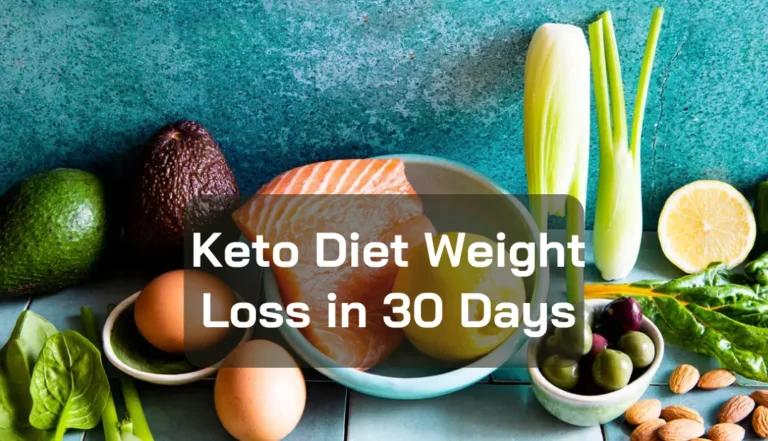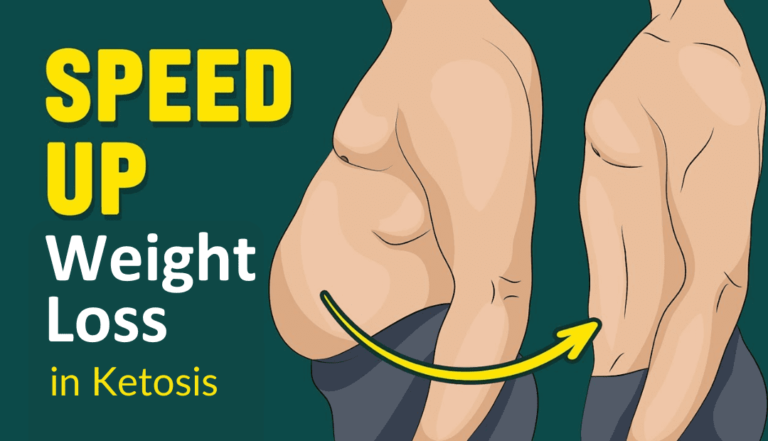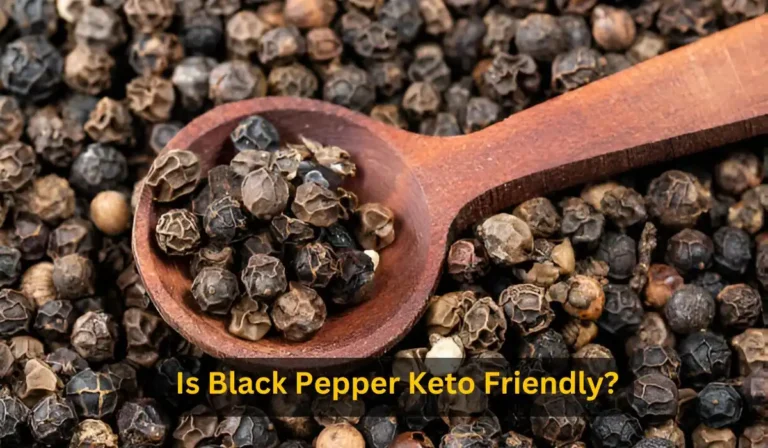Keto Diet for Acid Reflux: Benefits and Considerations for Symptom Relief
The keto diet is popular for its low-carb approach, but many wonder how it affects acid reflux. For some people, the keto diet may help alleviate symptoms of acid reflux when managed correctly. You might be hesitant due to concerns about high fat intake, yet with careful choices and appropriate foods, you can enjoy the benefits of this eating style while minimizing discomfort.

It’s essential to understand the relationship between what you eat and how it impacts acid reflux. Learning which keto-friendly foods can be beneficial is key to making this diet work for you. Exploring tips and adjustments can lead you to a manageable way of following the keto diet without worsening your symptoms.
Key Takeaways
- Keto can improve symptoms for some acid reflux sufferers.
- Choosing the right foods is crucial for success.
- Consult your healthcare provider before making dietary changes.
Understanding Acid Reflux

Acid reflux occurs when stomach acid flows back into the esophagus. This can lead to discomfort and various health issues. It is important to understand the causes and symptoms of acid reflux to manage it effectively.
Causes of Acid Reflux
There are several common causes of acid reflux. One major factor is a weak lower esophageal sphincter (LES), which normally prevents stomach contents from moving up. When the LES is weak or relaxes inappropriately, acid can escape into the esophagus.
Other contributing factors include:
- Obesity: Extra weight can put pressure on the stomach.
- Diet: Certain foods, like spicy or fatty items, can trigger reflux.
- Smoking: Smoking can weaken the LES and increase acid production.
- Pregnancy: Hormonal changes can affect the LES and increase reflux.
Identifying these causes can help you make changes to reduce symptoms.
Symptoms and Risks
The most common symptom of acid reflux is heartburn, a burning sensation in the chest. You may also experience:
- Regurgitation: Sour or bitter taste in your mouth.
- Difficulty swallowing: A feeling that food is stuck in your throat.
- Chronic cough or hoarseness: These can result from acid irritating the throat.
If left untreated, acid reflux can lead to more serious conditions such as gastroesophageal reflux disease (GERD), esophagitis, or Barrett’s esophagus. Managing acid reflux early is crucial to prevent these complications and improve your quality of life.
Keto Diet Fundamentals

Understanding the essential aspects of the keto diet can help you navigate how it may impact acid reflux. The focus is on how the body enters ketosis and the key foods you should incorporate for optimal health.
Ketosis and Health
Ketosis is a metabolic state where your body burns fat for energy instead of carbohydrates. When you significantly reduce carbohydrate intake, your liver converts fat into ketones, which serve as an alternative energy source. This process can lead to weight loss, which might benefit individuals suffering from acid reflux, as excess weight often worsens symptoms.
In ketosis, your body becomes more efficient at using stored fat. This may reduce inflammation, a contributing factor to acid reflux. However, it’s important to monitor your body’s reactions, as adjustments could be necessary if symptoms persist.
Key Foods and Nutrients
When following a keto diet, prioritize whole, nutrient-dense foods. Focus on healthy fats like avocados, olive oil, and nuts. These fats support ketosis without triggering reflux symptoms.
Incorporate high-fiber vegetables such as spinach, broccoli, and cauliflower. They are low in carbs and provide essential nutrients. Avoiding refined sugars and processed foods is crucial, as these can aggravate acid reflux.
Protein sources like lean meats, fish, and eggs are also important. They help maintain muscle mass while keeping you full. Always chew your food well and consider meal timing to further reduce reflux risks.
Keto Diet and Acid Reflux Relationship
The connection between the keto diet and acid reflux is important to understand for those considering this low-carb diet. While there are potential benefits, some concerns need to be addressed to ensure your experience is positive.
Potential Benefits
Adopting a keto diet may help reduce acid reflux symptoms for some individuals. This benefit often arises from weight loss associated with the diet. When you lose weight, the pressure on your stomach decreases, leading to less reflux.
Moreover, a ketogenic diet typically includes nutrient-dense foods. You can focus on whole food sources like vegetables, lean meats, and nuts. These foods can help improve digestive health and may support your body in mitigating symptoms.
Furthermore, the low carbohydrate intake may stabilize blood sugar levels, which can play a role in alleviating acid reflux symptoms. This stability might reduce the frequency of reflux episodes, allowing you to enjoy your meals more comfortably.
Possible Concerns
While the keto diet has potential benefits, there are concerns you should consider. The high-fat content can sometimes exacerbate acid reflux symptoms. Fatty foods may slow stomach emptying, which can lead to increased reflux.
Certain foods that are often included in a keto diet, such as fried foods and full-fat dairy, may worsen your condition. These foods can irritate the esophagus and weaken the lower esophageal sphincter (LES), making reflux more likely.
Research indicates that people with GERD should be cautious about their fat intake. You may want to focus on healthier fats, like avocados and olive oil, to avoid triggering symptoms while following the diet.
Implementing Keto for Acid Reflux
Adopting a keto diet can help manage acid reflux by focusing on carefully planned meals and monitoring your body’s response. This section will guide you through effective meal planning and the importance of tracking your symptoms.
Meal Planning and Recipes
When planning your keto meals, it’s crucial to prioritize low-fat, whole food options. Start with lean proteins like chicken, turkey, or fish, as these are less likely to trigger reflux. Incorporate plenty of non-starchy vegetables such as spinach, broccoli, and zucchini.
Sample Meal Ideas:
- Breakfast: Scrambled eggs with spinach and feta cheese.
- Lunch: Grilled chicken salad with mixed greens and olive oil.
- Dinner: Baked salmon with asparagus.
You can also use healthy fats like avocado or nuts, but be cautious with portion sizes. Avoid heavy, fatty foods that could worsen symptoms. Focus on simple recipes to keep meal prep easy and enjoyable.
Monitoring Symptoms
Keeping track of your symptoms is essential while on a keto diet. You should create a food diary to document what you eat and any reflux symptoms that follow. This can help identify triggers more easily.
Symptoms to Monitor:
- Frequency of heartburn
- Timing of symptoms after meals
- Specific foods that cause discomfort
By analyzing this information, you can adjust your meal plans for better results. If certain foods consistently cause reflux, it’s best to limit or avoid them. Regular monitoring can lead to more effective management of acid reflux symptoms while enjoying the benefits of a keto diet.
Consulting Healthcare Professionals
Before starting a ketogenic diet, it is essential to consult healthcare professionals. This is particularly important for individuals with acid reflux or GERD.
Your doctor can assess your specific health needs and determine if the keto diet is suitable for you. They may consider factors such as your medical history and current symptoms.
Nutritionists can provide valuable guidance on how to implement the diet safely. They can help you choose foods that support your health while minimizing reflux symptoms.
Consider these steps:
- Schedule an appointment with your healthcare provider.
- Discuss your symptoms and any medications you are currently taking.
- Ask about potential dietary adjustments and how to manage acid reflux on keto.
Being proactive in your healthcare can lead to better outcomes. It ensures that you are making informed choices about your diet and overall well-being.
Keep in mind that personalized advice is crucial. Each person’s experience with diet and acid reflux can differ significantly.
By working with professionals, you can effectively adapt the ketogenic diet to your lifestyle while managing your health.
FAQS About Keto Diet for Acid Reflux
Managing acid reflux while following a ketogenic diet involves careful food choices and specific strategies. Here are some common questions that can help you navigate your diet effectively.
How can one alleviate acid reflux symptoms while following a ketogenic diet?
To alleviate acid reflux symptoms, focus on whole food sources. Opt for lean meats, low-acid vegetables, and healthy fats. Eating smaller meals more frequently can also help prevent discomfort and reduce the chance of acid reflux. Staying upright after meals is another effective tactic.
Are there specific recipes recommended for GERD patients on a keto diet?
Yes, you can find several recipes that cater to GERD patients on a keto diet. Look for meals that include ingredients like zucchini noodles, cauliflower rice, and grilled chicken. Incorporating herbs and spices like ginger and turmeric can enhance flavor without triggering acid reflux.
What low carbohydrate breakfast options are suitable for acid reflux management?
For breakfast, consider options like scrambled eggs with spinach or avocado, or a smoothie made with almond milk and berries. These choices are low in carbohydrates and less likely to cause a reflux flare-up. Avoid high-fat or processed breakfast items for better results.
Can a ketogenic diet contribute to increased acidity or acid reflux?
Yes, a ketogenic diet can lead to increased acidity for some people. High-fat meals may trigger reflux symptoms, especially if they contain fried or spicy foods. It’s important to monitor your body’s reactions and adjust your diet accordingly.
Which types of carbohydrates are considered beneficial for those with acid reflux?
Beneficial carbohydrates include low-glycemic index foods such as non-starchy vegetables and some fruits like berries. These options can provide nutrients without causing spikes in acid production. Avoid refined or high-sugar carbohydrates, which can worsen symptoms.
How can one modify a keto diet to reduce episodes of heartburn or acid reflux?
To reduce heartburn episodes, choose fats that are less likely to trigger reflux, like olive oil and avocado oil. You can also limit heavy, fatty foods and focus on lighter proteins. Additionally, eating smaller portions can help keep symptoms at bay.






